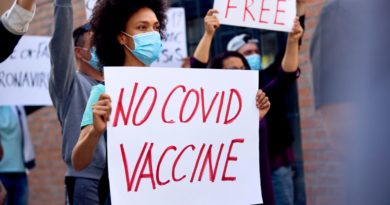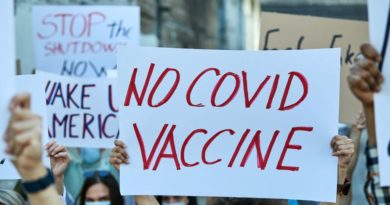Why we can’t expect Covid-19 vaccines to be free of side effects
Vaccines are one of the great triumphs of modern medicine. They have helped add decades to human life expectancy and are one of the best tools for preventing disease and death. Childhood vaccines prevent between two and three million deaths a year.
But how safe are vaccines?
They are one of the safest medical interventions we have. But “safe” is not synonymous with “no side effects”. No medical treatment is completely free of side effects. So to expect the new range of Covid-19 vaccines to be free of them is unreasonable.
Vaccine scepticism has existed since Edward Jenner administered the first smallpox vaccine, in 1796. Reasons include religious beliefs, past medical exploitation inflicted on minority populations, and the current rampant misinformation on social media. And it has to be said the particularly rapid development and approval of Covid-19 vaccines is food for sceptics while offering a fertile breeding ground for conspiracy theories.
The risk of not being vaccinated against Covid-19 is far greater than the risk of side effects from the vaccine itself
The risk of not being vaccinated against Covid-19 is far greater than the risk of side effects from the vaccine itself. Of the tens of thousands of people who have already been vaccinated, some have reported short-term symptoms like fever or aches. These are consistent with the brief side effects seen with all vaccines: local bruising at the injection site, headache, and a feeling of malaise.
What about the allergic reactions that have been reported?
In Britain, the first two cases of anaphylaxis occurred in people with a strong previous history of severe allergic reaction. In the US, most reactions occurred following injection with the Pfizer vaccine; a Boston medic with a shellfish allergy developed a severe allergic reaction after receiving the Moderna vaccine.
None of this is a surprise: a three-year review of adverse reports on a US national vaccine database found that anaphylaxis after vaccination is rare, occurring at a rate of about 1.3 per million doses of vaccine administered. Of the 33 cases identified, 85 per cent occurred in people with a history of allergies. Significantly, out of the 25 million vaccinations given, no one died.
But we are notoriously bad at assessing risk, especially when it is presented numerically – as in, say, the hypothetical danger of a 1-in-500,000 risk of serious side effects from a particular vaccine. Comparators, explaining that we run the same risk of being hit by lightning in a given year, say, help us contextualise risk. And it also helps if the mortality rate from the infectious disease is presented alongside the risk of a vaccine side effect.
The results of the published studies into Covid-19 vaccines are unreservedly positive. However, significant questions remain, including whether the vaccine prevents asymptomatic transmission, how quickly a vaccine becomes effective, and how long immunity will last.
Vaccines are a marvel of modern medicine. They are very safe. But there is an old adage that says ‘vaccines don’t save lives, vaccinations do’
It is actually quite difficult to produce vaccines that stop virus transmission completely. Flu vaccines typically induce protection from disease but not necessarily protection from infection. This is largely due to the different strains of influenza that circulate – a situation that has also occurred with Sars-CoV-2. But flu vaccines, despite being unable to induce complete immunity, are still extremely valuable at controlling the virus. Looking for a Covid-19 vaccine to prevent asymptomatic transmission of the virus may be a big ask.
At the beginning of January, the UK joint parliamentary committee on vaccination and immunisation published a statement that provides some insight into how quickly Covid-19 vaccines become effective. It takes two weeks to have an effective immune response after a single dose of the vaccine. And those who received the Pfizer-BioNTech vaccine seem to have 90 per cent protection two weeks after the first dose.
However, it’s too early to establish how long immunity lasts.
Vaccines are a marvel of modern medicine. They are very safe. But there is an old adage that says “vaccines don’t save lives, vaccinations do”.
muirishouston.com, mhouston@irishtimes.com
*** This article has been archived for your research. The original version from The Irish Times can be found here ***


